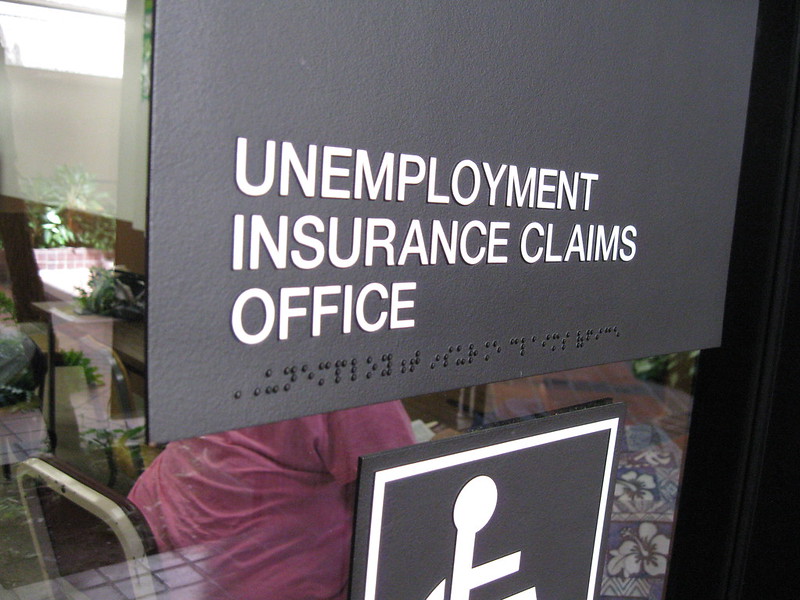Wisconsin Still Denies Unemployment Claims for People on Disability
Federal judge ruled in July 2024 that the exclusion violates federal law.
Since 2013, a Wisconsin law has blocked workers who lose a job from collecting unemployment insurance if they also receive Social Security disability benefits.
A federal judge ruled in July 2024 that the exclusion violates federal law. Nine months later, however, the Wisconsin Department of Workforce Development (DWD) continues to reject unemployment claims from laid-off workers who are also on disability.
The delay in implementing the judge’s ruling frustrates workers such as Judy Fintz of La Crosse. Fintz receives a monthly Social Security Disability Insurance (SSDI) payment of $1,400. By itself it’s not enough to live on, she says, but she’s able to work part-time at a college dining hall to help make ends meet.
When the dining hall is closed between semesters and during breaks, her income drops — but unlike other employees, she can’t file for unemployment insurance (UI) to tide her over during those periods.
“I work very hard on my job,” Fintz said in a telephone interview. “I shouldn’t have to have all this problem going on.”
The 2013 Wisconsin law that blocks SSDI recipients from collecting unemployment insurance passed the state Legislature with only Republican support and was signed into law by then-Gov. Scott Walker.
It was enacted to “prevent the payment of duplicative government benefits for the replacement of lost earnings or income, regardless of an individual’s ability to work,” in the words of the statute. A proposal in 2012 from the Walker administration claimed that most SSDI recipients didn’t work and therefore, if they collected unemployment pay, they were “double-dipping” and probably committing “fraud.”
The federal Social Security Administration program allows disability insurance recipients to work part-time if they are able to, however. The program encourages them to do so under procedures structured to ensure they do not lose their disability payments or their medical coverage under Medicaid.
Victor Forberger, a Madison lawyer who represents people making unemployment insurance claims, says Wisconsin has thousands of SSDI recipients who also work part-time.
Forberger is one of a team of lawyers who sued DWD on behalf of eight plaintiffs in 2021, charging that the state ban on jobless pay for SSDI recipients violated federal laws that protect people with disabilities. Lawyers from Gingras, Thomsen & Wachs and Axley Brynelson were also part of the case.
On July 17, 2024, Judge William Conley ruled on summary judgment that the 2013 law violated two federal laws: the Americans with Disabilities Act and the Rehabilitation Act. In his decision Conley stated that while Wisconsin law didn’t intentionally discriminate against people with disabilities, it “applies only to individuals with disabilities, meaning that it necessarily has a disparate impact on those with disabilities.”
Conley’s ruling put off a remedy for the plaintiffs. The lawsuit was filed as a class action, and lawyers for the plaintiffs and DWD have conflicting views about who should be included in the class action as well what remedies are appropriate. A hearing is scheduled for later this year to decide what groups of people would qualify for a remedy and what the remedies should be.
Those questions relate to people who made claims in the past however — SSDI recipients whose UI claims were denied, or whose claims were initially accepted, then reversed, and who were required to repay their unemployment compensation.
DWD has not indicated any plans to appeal the judge’s summary judgment finding.
Since the July ruling, however, DWD has continued to reject UI claims from laid-off workers who are also on SSDI, Forberger said — ignoring Conley’s conclusion that doing so violates federal law.
“There’s no logic that I’m aware of that would indicate why a disabled worker today filing for unemployment benefits should be denied unemployment benefits,” Forberger said.
In response to an inquiry from the Wisconsin Examiner, Lee Sensenbrenner, communications director for DWD, said in an email message, “Due to the ongoing litigation here, we won’t be able to comment.”
Judy Fintz is one of the plaintiffs in the lawsuit against the SSDI restriction. She said she thought after the judge’s ruling was issued that she and other SSDI recipients would now qualify for unemployment benefits.
“If it’s discrimination — and that’s what the judge said — that’s what they should go on,” she said.
Forberger, who participated with Fintz in her telephone interview, pointed out that based on her work history and wage rate, Fintz would have a weekly unemployment insurance payment of $81.
“They’re refusing to pay her $81 a week under this eligibility ban,” he said. “Judy’s not getting rich off anything.”
Another plaintiff in the lawsuit, Cliff Neuman, combines his disability payment from SSDI with part-time work he is able to take on.
Until the beginning of this year, Neuman was working part time at a grocery store. One day, he said, the store stopped scheduling him for shifts. He said he never got an explanation why.
With Forberger’s help he filed unemployment insurance claims each week for the five or six weeks he was out of work before finding a new job as a restaurant dishwasher. “A couple of times we called and people refused to help him because they said he gets SSDI and is not eligible,” Forberger said.
One requirement for UI applicants is to regularly search for new work and to document those searches. Neuman followed through on that requirement, but his UI applications got mired in rejections and appeals.
An administrative law judge found in February that Neuman was eligible, a consequence of the Conley decision in July. After a DWD lawyer asked for reconsideration, however, the administrative law judge set aside his earlier finding.
DWD’s lawyer argued that the July federal court ruling is not final and that since Conley had not issued an injunction against following the 2013 law, Conley’s decision could not be used to overrule the decision to deny Neuman’s UI claim.
Forberger submitted a response arguing that where new claims are concerned, the Conley decision should be treated as final.
The administrative law judge responded by setting aside his own earlier ruling and asking both DWD and Forberger to address additional questions.
Neuman was disappointed by that outcome and his inability to collect UI despite the Conley ruling in July.
Getting jobless pay “shouldn’t matter if I had SSDI or not,” Neuman said. “Once you’re working you should get that.”
The denial of his claims is “not right and fair,” he said. “To me that’s picking on people that have disabilities.”
Wisconsin still denies unemployment claims for people on disability was originally published by the Wisconsin Examiner.
If you think stories like this are important, become a member of Urban Milwaukee and help support real, independent journalism. Plus you get some cool added benefits.






















